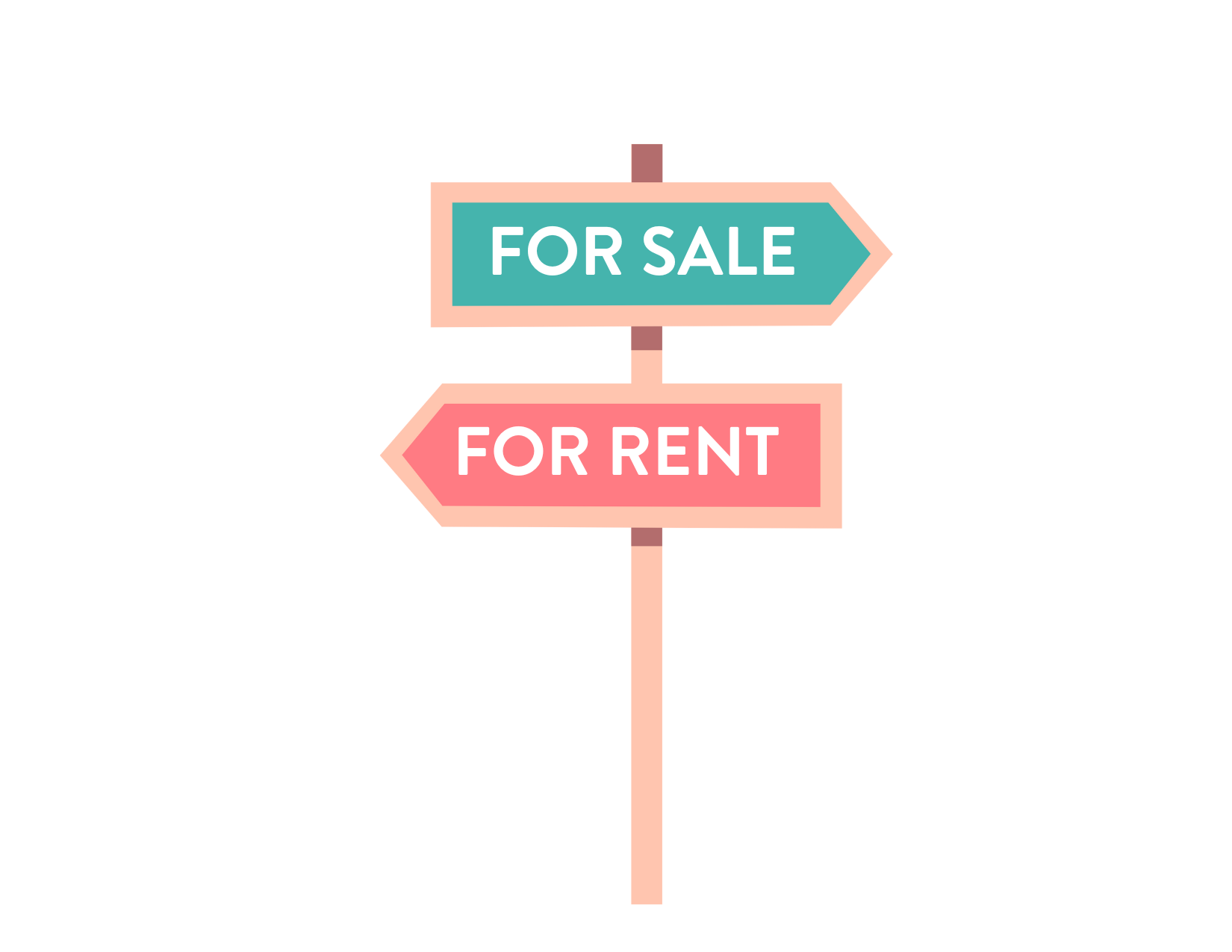
Every buyer wants to purchase at a great price and a low mortgage rate as that is a major factor in the monthly cost. Here’s how today’s buyers are being impacted:
Price – Based on a home price expectation survey released by Pulsenomics on April 15, more than 100 housing experts predict a 3.4% annual gain in US home values for 2025. Values are forecasted to increase 3.3% in 2026. The Fannie Mae survey expects that home prices will rise at least through 2029.
Mortgage Rates – The average fixed 30 yr. rate is 6.88% this week, according to Bankrate’s latest lender survey. Experts project rates could be in the mid-to-low 6% range by the end of the year as greater uncertainty unfolds in the economy.
If you're holding off on buying a home, hoping mortgage rates will drop, it's important to also consider where home prices are headed. Experts expect prices to keep rising — which means waiting could end up costing you more, even if rates improve. Buying now lets you start building equity sooner and take advantage of today’s market before prices climb higher.
Contact me if you would like expert advice on buying in today’s challenging market.
 |
Donna ForestM: 603-731-5151donna@donnaforest.com Follow her on Facebook |

Buying a new home before selling your current one can be tricky. It usually requires having enough cash on hand and possibly managing two mortgages at once. While it's a challenge, here are some strategies to explore.
- List your house for sale subject to finding suitable housing - usually done with a time limit on how long you would have to find a new home.
- Sell your house with the contingency of leasing it back for a set period of time.
- Use the home equity from your current house.
- Take a loan out from your 401(k).
- Obtain a bridge loan.
There are pros and cons to these options and it's important to understand the financial impacts of each by talking to both your financial advisor and your Realtor.
Whether buying or selling, contact me to work with a Realtor® who can help you find the best option.
 |
Donna ForestM: 603-731-5151donna@donnaforest.com Follow her on Facebook |

Based on a recent Realtor.com report, April 13-19 is the ideal week to list your home! This week stands out because the demand is higher this time of year. With mortgage rates stabilizing, more buyers are returning to the market. Since there are more active buyers, who are eager to be settled into their new homes by summer, there is a good chance for a faster sale.
Reach out to take advantage of our accumulated vast local expertise, experience, and insight. We’d love to make YOU our next success story!

Whether buying or selling, below are some items that may impact your sale.
- Insurance – Many insurance companies are sending someone out to visually inspect a property after issuing a new policy (especially on older homes). If there is something like an old roof or peeling paint, you may be required to fix the situation to maintain the same policy and price.
- Lead Paint – All pre-1978 properties that are turned into rental housing as of July 2024 are required to have a Lead Safe Certificate issued by a licensed NH Risk Assessor prior to occupancy. This includes single family homes that are put on the rental market (like Airbnb or VRBO).
- Shoreland Septic Systems – If a septic system is within 250 ft. of the reference line, the buyer is required to have the system inspected. If the existing system was never approved by the state or approval was prior to 1989, the buyer must hire a septic system designer to determine the elevation of the bottom of the leach field relative to the high-water table. There are a lot more details with this law so be sure you understand it before selling or buying a waterfront home.
Whether buying or selling, contact me to work with a Realtor® who keeps current with the laws and regulations that could affect your bottom line.
 |
Donna ForestM: 603-731-5151donna@donnaforest.com Follow her on Facebook |

Inflation makes day to day expenses unpredictable, but a fixed mortgage stabilizes your biggest monthly expense. Whereas if you rent, the rent price will rise over time, often faster than the rate of inflation.
Owning real estate is one of the strongest ways to gain equity. Renting does not provide that capability. As a renter, you pay more without gaining any financial benefit.
Thinking of making the move from renting to owning? Get in touch! We’d love to make YOU our next success story!
The post "Buying a Home May Help Shield You from Inflation" appeared first on Keeping Current Matters.
The post "How to Choose a Moving Company" appeared first on Better Homes and Gardens Real Estate Life.
Choosing a moving company can be a challenge. It’s often difficult to know what you need and the questions to ask—and how to avoid falling victim to the schemes moving companies sometimes perpetrate on unsuspecting customers. There are a myriad of charges that come with moving a household—fees for supplies, labor, transportation, and other related items and activities. Many moving companies have unusual policies (like charging double travel time) that can be confusing or not adequately disclosed. So, how do you navigate all of this without losing precious time, money, or sanity? What’s the best way to understand exactly what your move requires and the services a moving company offers, and then choose a mover that best meets those needs? The Better Business Bureau (BBB) says that most moving company complaints stem from consumers being upset that the mover damaged items, arrived late, billed for unworked hours, or didn’t honor estimates (bait and switch). Your goal is to find a moving company that’s transparent in its offerings, does what it says it’ll do, and charges correctly when the job is done. If you can locate a company that does all of this—and hopefully goes above and beyond—you’ll find that gem that every homeowner hopes for. Moving is stressful. You don’t need to add more to your already-loaded plate by getting wrapped up with companies that provide unwanted problems instead of trustworthy service. Before you hire your next mover, take the time to read this guide on how to choose a moving company. Review the things you should look for in a mover. Go through our tips on choosing a reliable moving company and familiarize yourself with common scams to avoid.
Get Referrals
Ask friends, family, and neighbors who they’ve used to move their belongings. If you’re working with a real estate agent, get referrals for moving companies with an outstanding track record.
Ask for Quotes
Get quotes from at least three movers. Ask them if they charge by the hour or a flat rate (if a flat rate, how many hours of service do you get and what do they charge for overtime?)—and inquire about how many movers the company will assign to your job. Is there a fee for miles, gas, or travel time? What supplies does the mover provide (are there any mandatory charges for blankets, bubble wrap, moving dollies, etc.)? Do they need to see your belongings before giving a guaranteed quote? There are other price-based questions you can ask, depending on your specific scenario, but this should get you moving in the right direction.
Look for Red Flags
Most moving companies won’t charge a deposit before moving your items, so avoid those that do. A mover shouldn’t be anxious to get money from you. Movers who are vague and don’t want to answer questions should raise a huge red flag. Note the professionalism of all company representatives you talk to. Ask movers if they own or rent their van or truck (a reliable moving company will own a van or truck).
Ensure the Mover is Licensed and Insured
All licensed interstate moving companies must have a U.S. Dot number issued by The United States Department of Transportation Federal Motor Carrier Safety Administration (FMCSA). If you’re moving out of state, you can verify the company’s license through the FMCSA’s website. You can also view the company’s DOT number on the FMCSA website. Are you moving within the state? Investigate any company you’re considering by looking up its business profile through your state’s local consumer affairs agency.
Check the Better Business Bureau
Research all potential moving companies by reviewing their BBB ratings and any complaints against the providers (don’t consider any companies that don’t have a BBB profile or rating). Ideally, the company you choose should have BBB accreditation.
Inquire About Trade Association Accreditation
Go to the moving company’s website and look for an approved seal or logo that distinguishes the mover as part of a related industry trade association or organization. Good movers will probably have the American Moving and Storage Association’s ProMover logo on their website or marketing materials. You can also look up moving companies on the American Moving and Storage Association’s website to see if they’re members in good standing.
Verify the Company’s Address
The moving company you choose should have a brick-and-mortar location and the mover’s address should be listed as business—either in search engine listings or moving company directories. Don’t consider any mover with an address that points to a residential property.
More Tips for Choosing a Reliable Moving Company
Don’t stop your investigation after moving through the guidelines above. Before signing a moving contract, do the following:
- Ask if the company will take an inventory of all your items
- Get a written estimate
- Avoid companies that recently changed their business name
- Inquire about extra fees for moving to or from properties with stairs or elevators
- Ensure there are no blank spaces on your moving contract
- Be wary of guaranteed quotes unless you get them in writing
- Ask about moving insurance
How to Avoid Moving Scams
The most common moving scams that you should be aware of include:
- Bait and switch—when a moving company switches the time or day of your move at the last minute and the move ends up costing you more
- Late pickup or delivery—the mover arrives late, pushing you into a more expensive time slot (or they don’t deliver your items on time, sometimes taking longer than expected to get to your new location so they can charge you more)
- Exorbitant delivery charges and hold hostage—movers occasionally add additional costs to your total and won’t give you your items until you pay all the fees (or fight them)
Are you looking to sell or buy a new home? Let Better Homes & Gardens Real Estate® walk you through the process.

Though many view spring as the ideal time for selling and buying homes, there are compelling reasons to consider listing and purchasing properties during the winter months in New Hampshire.
For Sellers:
- Motivated Buyers: Winter buyers often have urgent needs, like job relocations, that can lead to quicker sales.
- Less Competition: Fewer homes on the market mean your home stands out more.
- Cozy Appeal: Winter in NH allows sellers to highlight the warmth and coziness of their home, making it inviting and appealing. Features like a fireplace, good insulation and efficient heating can be highlighted.
For Buyers:
- Serious Sellers: Sellers in the winter are often motivated, leading to better negotiation opportunities.
- Less Buyer Competition: Fewer active buyers means less competition, potentially giving better selection of homes without the multiple offer situations common in peak seasons.
- Winter Ready: By viewing homes in winter, buyers can gauge how well a home handles the cold — whether it’s adequately insulated, how effective the heating system is, or if there are drafts.
Buying or selling a home in New Hampshire during the winter months might seem unconventional, but it offers unique advantages that can benefit both sellers and buyers. With the right perspective and the help of a local real estate expert, winter can be an excellent time for real estate transactions in the winter wonderland that is New Hampshire!
If you’re thinking of buying, selling or renting, Deb has you covered!
 |
Deb ReesM: 603-454-8380deb@bhgmilestone.com |
The NAR recently put out a consumer guide to buying your first home. It breaks down the first steps and terms you should know. Check out this great resource below!


Are you looking to buy your first home? Here are some essential things that you should know!
Get Your Finances in Order
- Get preapproved for a mortgage
- Make your own home buying budget
- Maintain your credit
- Save for a down payment and closing costs
- Budget for repairs
- Speak with a lender and understand your different loan options
Find a Real Estate Agent
- Reach out to multiple offices to find the right fit for your needs
- Agents will be there to help you every step of the home buying process
Make Your Home Buying Wish List
- Include your must haves, nice to haves, and nonnegotiables
- Don't fall in love with a house - determine what home would be the best for your needs now and in the future
Don't Make Big Changes
- Finance big ticket items
- Switch jobs
- Close credit cards
"A qualified buyer’s representative can guide you through all the steps to purchase your first home, including assistance programs in your area. They’ll help you ask all the right questions, consider all your options, and point out the pros and cons of any house you are considering." (NAR.com)
Contact us for more useful tips if you are thinking of buying! For the best selling, buying, or renting experience, call "The Best Team in Town" at 603-526-4116!
Sources:
https://homebuying.realtor/content/5-essential-things-every-first-time-homebuyer-should-do
https://www.rocketmortgage.com/learn/first-time-home-buyer-tips
https://realestate.usnews.com/real-estate/articles/fast-tips-for-first-time-home-buyers

- A BRAND WITH A LEGACY ®
It’s more than just a name you know, it’s a name you trust. The Better Homes & Gardens brand has been a trusted source for homeowners, buyers and sellers since the 1920’s. - AUTHENTIC CONNECTIONS
The Better Homes and Gardens Real Estate brand comes with a network like no other; which means more connections to potential buyers and sellers for your next home transaction. - PASSIONATE PROFESSIONALS
We are affiliated with a network of over 12,000 affiliated real estate professionals who are united by common core values and compassionate culture… all with the main goal to serve YOU! - A BRAND FOR YOUR LIFESTYLE
We know that you are not buying a home but buying the home in which to live your best life in; our unique tools allow us to help you in that process. - EXPECT BETTER®
Our promise to you: to bring all the skills, credibility and marketing power that you would expect from a brand whose focus is to help you achieve your dreams of homeownership and beyond. - INDUSTRY-LEADING TOOLS
Our cutting-edge tools, technology and resources will allow affiliated agents the ability to help guide you through your transaction with ease. - PART OF A FAMILY
As part of a great Better Homes & Gardens family, affiliated Better Homes and Gardens Real Estate agents are a step ahead on things such as interior design, outdoor design and lifestyle trends and can share this with you to help you live your best life. - TOP SEARCH ENGINE RESULTS
Better Homes and Gardens Real Estate listings are prominently displayed on major search platforms, and affiliated agents can promote these listings through a highly targeted digital marketing campaign to ensure they are seen by thousands of potential buyers. - A BRAND WITH A SOUL
We are fueled by the desire to make a difference in our community and the world community. The Better Homes and Gardens Real Estate network has teamed up with New Story, a charity devoted to building life-changing homes for impoverished families in El Salvador. - FACILITATING A STRESS-FREE MOVE
When you work with an affiliated Better Homes and Gardens Real Estate agent, you have access to amazing discounts from companies like PODS®, Mohawk® Flooring, and ADT that you can use to help with your transition into your next home.
©2024. Better Homes and Gardens Real Estate LLC. All Rights Reserved. Better Homes and Gardens®, the Better Homes and Gardens Real Estate Logo, BHGRE, Be Better and Expect Better are service marks owned by Meredith Corporation and licensed to Better Homes and Gardens Real Estate LLC. Better Homes and Gardens Real Estate LLC fully supports the principles of the Fair Housing Act and the Equal Opportunity Act. Each franchise is independently owned and operated. The above companies are independently owned and operated from Better Homes and Gardens Real Estate LLC and Realogy Holdings Corp. and are the owners of their respective marks and logos.




